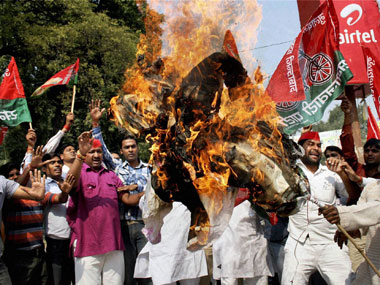In the season of overreach and over-the-top activism, here’s more. The Kerala High Court has stopped just short of suggesting that consumers should come out in resistance against price hike.
“Price rise is equivalent to slow death… Political parties are making protests. There is no consumer resistance. They are getting adjusted to frequent hikes. We are concerned about the price hike,” a division bench of the high court has observed, according to media reports. The bench was hearing a PIL against the frequent petrol price hikes.
Where does judicial activism stop and judicial overeach begin? The thick line between the two gets totally blurred here. It is one thing for the courts to be sympathetic to people but quite another to suggest, even faintly, of resistance to what is unpopular. Moreover, as the court itself admitted, granting authority for fixing prices of petroleum products was a policy matter of the central government and it cannot interfere in the present hike.
Clearly, things are going a bit too far. There are indications that the courts are getting inclined to exceeding their mandate and transgressing into areas they should be staying off as matter of propriety. Institutional decorum stipulates no-go areas for each arm of the democracy. If every institution thinks it fit to encroach upon the territory of the other the end result would be chaos.
Not long ago, a Supreme Court bench raised eyebrows by making an observation which smacked of ideological leaning of the judges. It spoke out openly against the policy of liberalisation and how it led to the culture of greed and selfishness in society.
“In the name of globalisation, liberalisation and development, don’t marginalise the poor. Why is there a proliferation of militant activities (in the country)? That is because the poor are being pushed to the wall,” observed another bench of the apex court while hearing a plea from Uttar Pradesh’s farmers aggrieved at the government’s decision to sell off their land to real estate developers.
The judges are entitled to their personal views. But that should come out in personal space. There is no specific need why they should stray from the facts of the particular case and evidence at hand while judging a case. If they have Leftist-Socialist views, that should not obstruct objective understanding of the case under consideration. It goes against the fundamental principles of the law.
The Kerala High Court seems to have gone several steps further. It has said, according to media sources, that the Central and state governments cannot wash their hands of from rising prices. It has directed the Indian Oil Corporation and Reliance Petroleum to produce their balance sheets and quarterly reports.
It raises serious questions about the utility and abuse of public interest litigation too. It has allowed the courts to take a position — not necessarily strictly judicial all the time — on issues that should be tackled by the government. It has allowed the judiciary to expand its powers to all aspects of the society.
There’s no denying that PILs, which started after the Emergency of 1975 — have been instrumental in protecting the rights of individuals and have ensured even-handed justice in a lop-sided democracy. But for the judicial intervention the 2G scandal and the Commonwealth Games financial irregularities won’t be as big issues as they are today. Nor would the executive and the investigative agencies fall in line to deliver what they are supposed to.
PILs and the judiciary have played a salutary role in our democracy. But there has to be a line between activism and overreach. Overreach disturbs the institutional balance of power and responsibilities. The courts are not supposed to run the country; it’s the job of the government. The courts must sympathise with people but not by taking a call on policies and bringing into question every decision of the government.
The government is ultimately accountable to people.
Watch video:The Kerala high court observed that price rise is equivalent to slow death and that people should come to the fore against it.


)




)
)
)
)